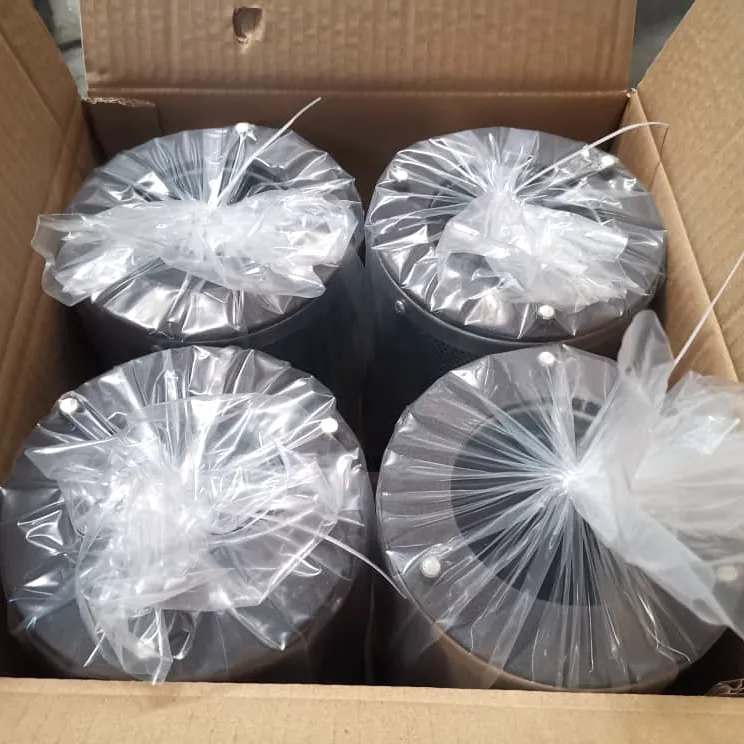 Tel:
+8618931101301
Tel:
+8618931101301
gru . 04, 2024 15:57 Back to list
High Efficiency Stainless Steel Pleated Filter Cartridge for Optimal Filtration Performance
The Importance of SS Pleated Filter Cartridges in Industrial Applications
In various industrial processes, the purity of fluids is paramount. This is where the SS (stainless steel) pleated filter cartridge comes into play. With its unique design and materials, this type of filter cartridge has gained significant attention for its effectiveness in removing contaminants from liquids and gases.
What are SS Pleated Filter Cartridges?
SS pleated filter cartridges are cylindrical filtration units made from stainless steel. The pleated design increases the surface area available for filtering, which enhances the cartridge's capacity to trap particulates, thereby improving the overall efficiency of the filtration process. The use of stainless steel as the primary material offers several advantages, such as corrosion resistance, durability, and the ability to withstand high temperatures and pressures. These features make SS pleated filters suitable for a wide range of applications, including water treatment, chemical processing, and food and beverage production.
Working Mechanism
The filtration process begins when the fluid enters the cartridge, flowing through the pleated media. As the fluid passes through, larger particles are trapped on the surface of the pleats, while smaller particles continue deeper into the filter matrix. The pleated structure allows for a higher volume of fluid to be filtered simultaneously, reducing the risk of clogging and extending the cartridge's lifespan. After the fluid passes through the pleats, it exits the cartridge clean and free of contaminants.
Advantages of Using SS Pleated Filters
1. Durability Unlike traditional paper or plastic filters, SS pleated cartridges can endure harsh operating conditions. They are less likely to rupture or degrade over time, ensuring long-term reliability.
ss pleated filter cartridge

2. Chemical Resistance The stainless steel construction allows these cartridges to handle a wide variety of chemicals, including aggressive solvents and corrosive substances. This versatility makes them suitable for industries ranging from pharmaceuticals to petrochemicals.
3. High Flow Rates The pleated design optimizes filter performance by maximizing surface area without occupying excessive space. This results in higher flow rates, reducing the downtime for maintenance and replacements.
4. Easy to Clean Many SS pleated filters can be cleaned and reused, making them a cost-effective choice for many businesses. Unlike disposable filters, they can be backwashed or manually cleaned, allowing for extended service life and reduced waste.
5. Versatility SS pleated filter cartridges are available in various micron ratings, catering to specific filtration needs. Whether fine filtration is required for clear liquids or coarse filtration for more viscous materials, there is an appropriate SS pleated filter available.
Applications Across Industries
SS pleated filter cartridges find applications in many industries. In the food and beverage sector, they are crucial in ensuring that products meet safety and quality standards. In pharmaceuticals, these filters play a vital role in producing sterile products. Moreover, in the oil and gas industry, they help maintain the integrity of valuable resources by preventing contaminants from affecting production processes.
Conclusion
In conclusion, SS pleated filter cartridges are a vital component in modern industrial filtration systems. Their unique design and robust construction offer numerous benefits, including enhanced durability, chemical resistance, and efficient filtration performance. As industries continue to prioritize quality and safety, the demand for reliable filtration solutions like SS pleated cartridges will undoubtedly grow. Investing in these technologies not only ensures compliance with industry standards but also enhances operational efficiency, making them a wise choice for any business looking to improve its processes. By understanding the significance of SS pleated filter cartridges, industries can better equip themselves to handle the challenges of filtration in an increasingly demanding world.
-
The truth about washable filters: Does repeated use really not affect efficiency?NewsJun.25,2025
-
Effect of humidity on the performance of activated carbon filter elementsNewsJun.24,2025
-
Material selection considerations for dust removal filter elements under high temperature conditionsNewsJun.23,2025
-
Cold knowledge of air filters: Why are some designed to be pleated?NewsJun.16,2025
-
Factory direct supply! High-precision air filter element wholesale and customizationNewsJun.12,2025
-
A complete analysis of the practical value of activated carbon filtersNewsJun.10,2025

 Email:
Email:





